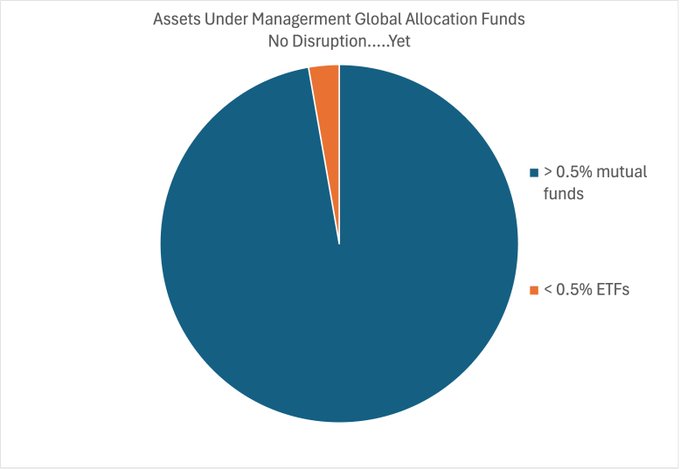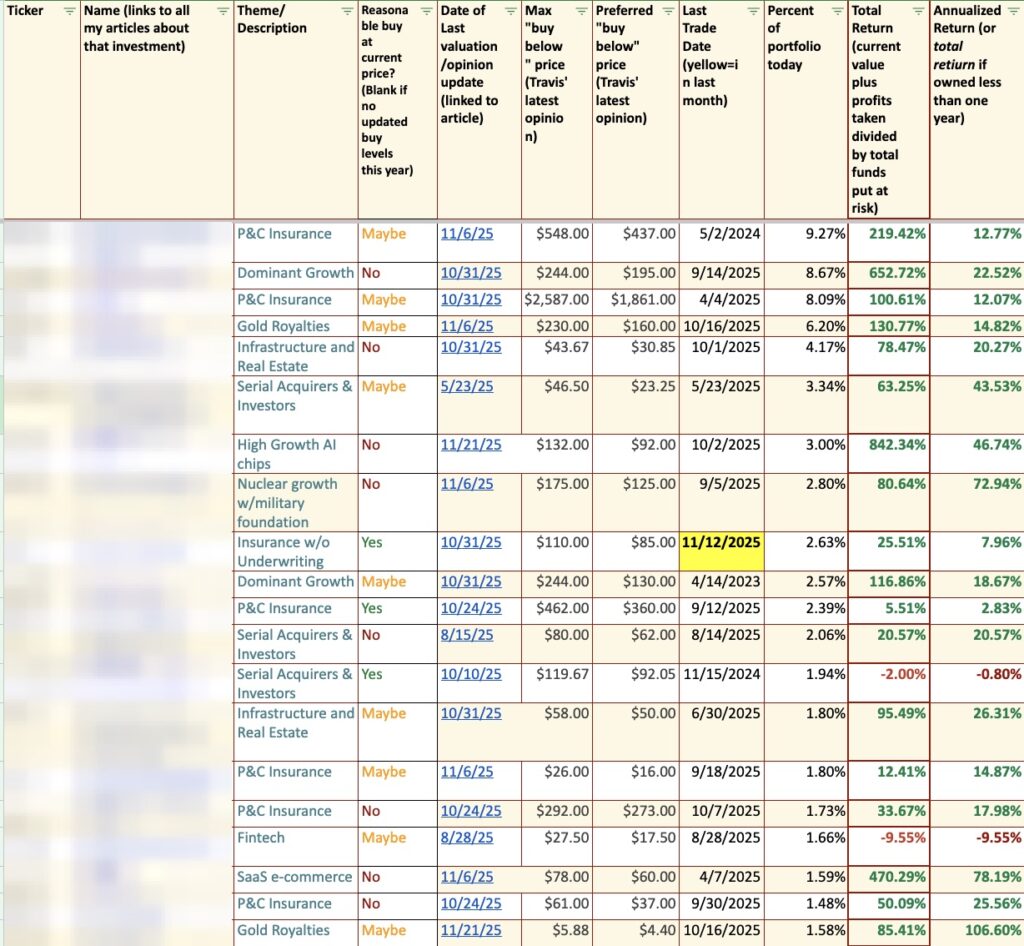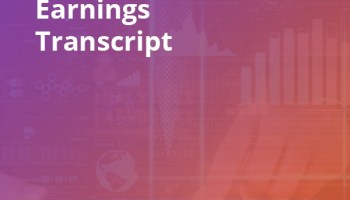AlTi Global, Inc. (NASDAQ:ALTI) Q2 2023 Earnings Conference Call August 15, 2023 5:00 PM ET
Company Participants
Lily Arteaga – Head of Investor Relations
Michael Tiedemann – Chief Executive Officer
Reid Parmelee – Interim Chief Financial Officer and Global Controller
Conference Call Participants
Wilma Burdis – Raymond James
Operator
Greetings and welcome to AlTi Tiedemann Global Second Quarter 2023 Earnings Call. At this time all participants are in a listen-only mode. A question-and-answer session will follow the formal presentation. [Operator instructions] As a reminder, this conference is being recorded.
It is now my pleasure to introduce Lily Arteaga, Head of Investor Relations. Thank you. You may begin.
Lily Arteaga
Good afternoon to everyone on the call today. Joining me this afternoon are Michael Tiedemann, our CEO, and Reid Parmelee, our Interim CFO and Global Controller. We invite you to visit the Investor Relations section of our website at www.Alti-global.com to view our earnings materials, including our updated Investor Presentation.
At this time I would like to remind everyone that certain statements made during the call are not based on historical facts, including any statements relating to financial guidance, and may be deemed forward-looking statements within the meaning of the Private Securities Litigation Reform Act of 1995. Because these forward-looking statements involve known and unknown risks and uncertainties, there are important factors that could cause actual results to differ materially from those expressed or implied by these forward-looking statements. AlTi assumes no obligation or responsibility to update any forward-looking statements.
During this call, some comments may include references to non-GAAP financial measures. Full GAAP reconciliations can be found in our earnings presentation and related SEC filings.
With that, I’d like to turn the call over to Mike.
Michael Tiedemann
Thank you, Lily. Good afternoon, everyone and thank you for joining us today for our second quarter 2023 earnings call.
In the second quarter, AlTi advanced the strategic priorities we laid out on our last call, and our performance is beginning to reflect these initiatives. As we discussed on our first quarter call, we are focused on the primary goals of streamlining our operations and growing our base of recurring revenues. As we move forward, we are confident that this approach and strategy will drive higher and sustainable margins.
Another important goal in 2023 was to increase our public float and simplify our capital structure, both of which we accomplished in the first-half of the year. All together, these steps position the firm for long-term growth in the broader financials sector. For a brief summary of our Q2 performance, on a consolidated basis, AlTi generated revenues of $52 million, of which 95% represent recurring revenues, adjusted EBITDA of $11 million, and ended the second quarter with $69 billion in assets under management and advisement.
Our net income for the quarter was $29 million and adjusted net income normalized for one-off items was $2 million. We are confident that our diversified platform is well positioned to capitalize on opportunities in any economic environment. This is evidenced by the sequential growth we reported across key operating and financial metrics.
We delivered steady asset growth in the second quarter. On a trailing 12-month basis, we have increased total assets by 15%. Our second quarter performance was led by 7% sequential asset growth in wealth management, the majority of which is organic. In parallel, we have successfully maintained asset levels across our alternatives platform, despite strategy-specific headwinds in the short-term. However, the hallmark of our asset management strategies is resilience. We pride ourselves on the ability to preserve capital during turbulent times and generate returns as the environment improves.
We expect our strategic initiatives to accelerate momentum in the current operating environment, and ensure we capitalize on opportunities as we lean into our strengths. As a reminder, we spent the first 90 days as a public company identifying our near-term strategic pillars, which include leveraging our competitive advantages to accelerate organic growth and execute disciplined, accretive acquisitions and simplifying the organization through cost-saving initiatives, as well as capital structure improvements.
These priorities are complementary in nature, address the current market environment and prioritize organizational enhancements for long-term growth and margin expansion. Our business is built on a solid foundation of recurring revenues which has been bolstered by our recent acquisitions and investments. We’ll now offer an overview of our two operating segments.
Starting with Wealth Management, in April we completed the acquisition of AL Wealth Partners, a multi-family office based in Singapore with approximately $1 billion in AUM. This accretive transaction grew our presence in Asia and specifically in Singapore, which has emerged as a global financial capital for wealth management. We believe that Singapore will be a key growth engine for our wealth and asset management business segments over the coming years.
Subsequent to quarter end, we signed a definitive agreement to purchase the remaining ownership stake of a Luganobased multi-family office that has been part of the legacy AlTi wealth management platform since 2019. This firm has approximately $1 billion in assets and offers exposure to the northern Italian market, an important region for our global wealth platform. The team is already largely integrated into the AlTi ecosystem and operating platform, which provides expanded solutions to its current and prospective clients. We will seek to identify and execute further strategic opportunities within wealth and asset management that align with our competitive advantages. The transactions we have completed expand our client base, continue to build upon our recurring revenues and will drive margin expansion.
Organically, we generated 4% sequential asset growth in Wealth Management this quarter. Our team is producing strong performance as evidenced by robust client wins globally. Additionally, AlTi has emerged as a destination of choice for leading ultra-high-net-worth, multi-family offices and premier wealth management firms seeking strategic investment. These firms are located globally in important wealth hubs and are looking for a partner that can offer a fulsome set of solutions to their current and prospective clients.
Firms are looking to unlock growth, while maintaining and enhancing a high-quality client experience. In summary, we are delivering substantial growth in our Wealth Management business, opportunities to grow are global and our outlook is strong.
Turning now to Asset Management, we largely sustained our AUM levels despite market headwinds. The public and private real estate businesses, as well as our real estate bridge lending strategy, have been impacted by the historic shift in interest rates and increased cost of capital. This has led to a temporary reduction of activity in the real estate sector. However, we see normalization on the horizon and are evaluating opportunities to capitalize on the cycle ahead by focusing on private real estate strategies with long-dated and predictable revenue streams.
We have a global opportunity set and have a leadership team in place to capitalize on the near-term environment. Most recently, we have added to this team by bringing on Lord Andy Hay, former Global Head of Knight Frank’s residential business to chair our Private Real Estate platform. We anticipate making additional appointments in the coming months and look forward to updating you on future calls.
We are leaning into this current environment as we see a robust opportunity in real estate from stressed and performing credit to equity. The team is prepared to capture market share in the near-to-medium term.
Earlier in the year, we also increased our stake in two of our affiliated managers: Zebedee, a long/short equities manager based in London, and Arkkan, an Asian Credit and Special Situation fund based in Hong Kong. Both funds have consistently outperformed their peers across market cycles and are examples of the types of differentiated strategies we seek in our asset management segment.
Turning to our event driven business, the second quarter proved to be challenging. The sector faced unprecedented and coordinated resistance from regulators and reduced deal flow due to the sharp increase in cost of capital. This has recently abated due to favorable outcomes in the courts, as our team had anticipated, and the environment has improved measurably in the third quarter.
Our public real estate strategy experienced a decline in market capitalization in the second quarter, trading at a discount to NAV despite excellent financial performance. In the second quarter U.K.-listed REITs traded down en masse due to persistent inflationary pressures and resulting interest rate hikes in the UK. Subsequent to quarter end, the assets have begun to recover as investors have better line of sight on the underlying fundamentals and believe interest rates are leveling off as inflation abates.
Turning now to our cost and capital structures, we are on track to achieve our stated goal of at least $16 million in total net savings on an annualized basis. These initiatives include the restructuring of underlying businesses across both wealth and asset management, consolidating our facility footprint, SG&A cost reductions, vendor rationalization and professional fees associated with our public listing.
In the coming months, we will continue executing on these initiatives while also growing recurring management fee revenue streams and increasing profitability. We expect the cost-saving initiatives to be fully reflected in the first-half of 2024, creating a simpler P&L and contributing to enhanced margins.
While on this topic, I also want to mention that as we continue to streamline our platform and invest into our strengths, we may exit certain non-core assets to generate capital to recycle into our core strategies.
In the second quarter, we also significantly improved our capital structure to benefit shareholders and encourage long-term ownership. In June, we completed a warrant for share exchange which increased the share count by approximately 5 million shares and alleviated the warrant overhang. We also finalized the registration of 19 million PIPE shares. These efforts quadrupled our public float to approximately 22% of shares outstanding, and significantly enhanced liquidity for all of our fellow shareholders.
I am pleased to report that in June, we completed the issuance of celebratory grants associated with the Company’s public market listing. This resulted in the issuance of approximately 4 million additional shares to all AlTi employees. This is an important step in aligning AlTi team members with our broader ownership base as we foster an ownership culture at the firm.
With that, I want to turn the call over to our interim CFO and Global Controller Reid Parmelee for a review of our financial performance in the quarter.
Reid Parmelee
Thank you, Mike. I want to note that our results are again presented as a comparison between predecessor and successor company as required by the accounting guidelines. In our case, Tiedemann Wealth Management Holdings is the predecessor company and AlTi is the successor. As such, the year-over-year results are not directly comparable.
As Mike mentioned, we are pleased with the performance in the quarter, as the results reflect the successful execution of our growth strategy and are beginning to show the benefits of our cost savings initiatives.
In the second quarter, AlTi’s AUM and AUA increased 3% sequentially to $69 billion, reflecting continued strong performance in the Wealth Management business. Wealth Management experienced a 7% quarter-over-quarter increase to $49 billion driven by our acquisition of AL Wealth Partners, solid market performance and robust new business wins.
Net new client flows were $430 million, largely driven by significant wins across our international businesses, as well as growth in the U.S. In Asset Management, AUM and AUA declined 4% sequentially to approximately $20 billion, reflecting primarily redemptions in our alternatives platform and a decline in market capitalization of our public real estate strategy, both stemming from the market headwinds.
In total, AlTi generated revenues of $52 million in the second quarter. Revenues in our Wealth Management segment, which entirely consist of management and advisory fees in the second quarter, were $34 million. This represents a robust increase of 8% compared to the first quarter.
In Asset Management, revenue was $18 million; 87% was recurring from management and advisory fees, as well as the management fee component from our affiliated managers included in distributions from investments.
Sequentially, Asset Management revenues reflected a lower asset level from pressure on the real estate sector and headwinds facing event-driven strategy in the second quarter. The sequential comparison is also impacted by seasonally weaker distributions from investments and reduced fees in non-deal driven businesses, specifically strategic advisory and private real estate.
On a consolidated basis, I am pleased to report that 95% of our total revenue in the quarter was generated from recurring fees. This is a key milestone as we strengthen our foundation and position AlTi to profitably operate across economic cycles. We also made progress on the expense front where we are starting to see the results of our cost savings initiatives. Sequentially, the results also reflect a significant reduction in one-time expenses.
Operating expenses in Q2 were $93 million, compared to $101 million in the previous quarter. Results for the quarter include a non-cash, one-time impairment charge of approximately $29 million related to the accounting deconsolidation of AHRA, approximately $15 million in one-time costs related to the transaction and organizational streamlining and approximately $3 million in non-cash equity compensation expense.
Normalized for these items, operating expenses would have been approximately $46 million in the period, resulting in an operating margin of approximately 12%. The improvement in profitability reflects a decline in compensation expenses, as well as reductions in recurring professional fees and T&E expenses.
We expect non-recurring costs to continue to trend downward as cost and growth initiatives take hold throughout the remainder of the year. Below the line, other income is $55 million, reflecting the non-cash $66 million gain from the change in fair value of earnout liability as a result of share price depreciation. This was partially offset by changes in the fair value of investments and the tax receivable agreement as well as interest expense.
As mentioned earlier, adjusted EBITDA was $11 million. Importantly, our adjusted EBITDA margin improved sequentially by 2% from 19% in Q1 to 21% in Q2. We believe this increase in profitability demonstrates the merits of our growth and cost savings initiatives, which will position AlTi for continued margin expansion and shareholder value creation in the quarters to come. We are committed to achieving our long-term goal of high single-digit annual growth rates in assets, low teen annual top line growth and adjusted EBITDA margin expansion to the mid-30s.
Turning to our balance sheet, we continue to be in a stable capital position due to our $250 million five-year BMO credit facility, which is comprised of a $150 million revolver and a $100 million term loan. At quarter end, we had drawn $171 million and our last 12-month EBITDA leverage multiple is 3.4 times.
Now I’ll turn it back to Mike for some closing remarks.
Michael Tiedemann
Thank you, Reid. We believe AlTi is well positioned to grow its global platform to achieve operating scale. Our strategic review has enabled AlTi to further lean into its strengths, continue to organically grow recurring revenues, prioritize accretive growth opportunities, increase profitability and position the platform for continued success.
I’m pleased with the team’s progress against our strategic initiatives, which speak to AlTi’s commitment to driving profitable growth and maintaining high standards of financial performance. We remain confident we have the right talent, suite of solutions, and plan to capitalize in the years to come.
With that, we’d like to now open up for questions. Operator?
Question-and-Answer Session
Operator
Thank you. Ladies and gentlemen, at this time we will be conducting a question-and-answer session. [Operator Instructions] Our first question comes from the line of Wilma Burdis with Raymond James. Please proceed with your question.
Wilma Burdis
Hey, good evening. Got a few questions so I’ll just keep going until you guys stop me. But anyway first, transaction expenses improved pretty significantly – I think $11.9 million, so down quite a bit from $17.8 million quarter-over-quarter. Could you talk a little bit about the trajectory for these rolling off?
Michael Tiedemann
Yes. Hi Wilma, thank you. I’m going to let Reid answer specifically, but the transaction expenses from the de-SPAC and warrant exchange are largely behind us, but there will continue to be other transaction expenses.
Reid Parmelee
Hi Wilma. Those costs are largely behind us, so we would expect to trend toward zero in Q3. What Mike mentioned related to future deals, we expect to incur transaction expenses in the coming quarters, in particular related to Lugano which we purchased in August. Those will be of a much smaller scale than those we incurred from the de-SPAC.
Wilma Burdis
Got it. Is there any way to break out how much was related to the warrant exchange?
Reid Parmelee
Sure. The warrant exchange was roughly $2 million.
Wilma Burdis
Thank you. EBITDA margin improved quite a bit quarter-over-quarter, 21%. We understand you’re trying to get it up to a higher level, can you talk a little bit about how that compares to your expectations and the trajectory over the next few quarters.
Michael Tiedemann
Clearly, as we described, the core business itself is doing well on a lot of levels, even despite some of the headwinds that we’ll talk about within asset management. The streamlining of the business is really critical, and so the combination of the two will lead to inflection of the business and that’s what we’re anticipating in these coming two, three, four quarters that lay ahead of us.
Wilma Burdis
Got it. The wealth management net flow looked pretty strong. Last quarter I think it was extremely strong, maybe a little bit outsized in a good way, but is this a good run rate for wealth management net flows?
Michael Tiedemann
Wilma, a key point to highlight between Q1 and Q2 is really the diversity. Q1 was largely U.S. and Q2 was more driven from international, and so we see that as obviously an important dynamic that the company can offer. Predicting quarter-to-quarter is very challenging to do, but we have a great pipeline, both in the U.S. and non-U.S. with both traditional wealth and impact prospects, so we’re excited about the future. But the real differentiation between the two quarters, aside from size, was the domicile of where the growth came from.
Wilma Burdis
Got it. Thank you. The AL Wealth deal appears to be performing very well. Can you talk about the pipeline for similar deals?
Michael Tiedemann
Lugano would be a similar deal, so what we just executed, and obviously we’ll have more information on that in our next call. There are firms of similar and larger size that we do come in contact with. There are some excellent firms both in jurisdictions in which we already operate, as well as others that we would consider strategically operating from. But, it’s hard to find great operators, who fit culturally, have the client profile that we have and have the identical operating ethos — both Lugano and Singapore are two great examples of that.
Wilma Burdis
Sounds good. Then for the merger arbitrage fund, you noted that in 3Q the conditions appear to have improved a little bit. Maybe you could go into a little bit more color there?
Michael Tiedemann
Yes, it’s a substantial improvement in two important ways, both of which are out of their specific control. So, interest rate environment and the inflation environment that has been driving the interest rate environment is levelling off. That enables M&A activity, let’s call it rolling forward the next 12-18 months. The calculation of debt costs will be easier for firms to model, so just in terms of deal activity, we expect an improvement. You’re beginning to see that already.
The most important thing in the last really six to nine months is the regulatory environment. We had never seen before regulators coordinating — the regulators were pursuing all types of deals, not just ones that were monopolistic in nature. So, the courts have been very favorable against the regulators, and that has really changed the backdrop for anyone considering doing a deal, and certainly those investing into merger arb deals, so spreads are getting normalized, which is a very good thing.
Wilma Burdis
Thank you. And then maybe I misheard you, but I thought there was a quick statement in there about the potential to sell non-core assets to reposition more core investments. If I understood you right, maybe you could give a few examples of some things you could reposition out of and into?
Michael Tiedemann
Yes. Inevitably, we’re going to evaluate all pieces of our business, and as part of streamlining to some degree you can say simplifying, but streamlining either jurisdictions that we operate in or regulatory entities that we have. One of the goals for this year is to have a very clear direction as we enter 2024, to have less regulated entities and to be oriented towards ones that we are growing and ones that are clearly tied to our core.
As we look at it, we have some attractive assets that are more strategically in-line with other businesses that our businesses would like to own, and so we are entertaining bids for a few of those to generate capital, then reinvest back into our core.
Wilma Burdis
Got it, thank you very much. Then last question, could you give a little bit of color similar to what you mentioned on the merger arbitrage fund on the outlook for the other core investment strategies?
Michael Tiedemann
Yes. I just want to make sure I understand exactly.
Wilma Burdis
For performance, can you just talk a little bit about how they are performing in 3Q and what you expect going forward?
Michael Tiedemann
Q2 for the Asia Credit strategy was a challenging environment for their marketplace, worse than the index would indicate because they have a range of credit which does expand in the distress. So they did a very good job of preserving capital and retaining liquidity to buy into that weakness. There hasn’t necessarily been a quick recovery in Q3, but the profile and the earnings profile of their investments is quite robust, so as you roll the clock forward the next 12 months, we’re actually very encouraged by that strategy and the team’s ability to survive challenging markets and retain earnings power going forward.
Our long-short equity fund is really non-directional and, as an example, made 20-some-odd percent in a down year last year, so they are a non-correlating strategy. Their opportunity set is really week-to-week in terms of how they move and maneuver themselves to take advantage of it. And arbitrage, as I mentioned, did very well relative and has recovered quite nicely in Q3, as I mentioned earlier.
Bridge lending strategy, it’s an unbelievable backdrop, particularly as you look at the regional banks and their capital challenges. So being a private lender into real estate or just generally in private credit as a strategy, there’s a lot of tailwinds and obviously a lot of investor interest. So, that’s a strategy that we’re really focused on and making sure that we’re able to grow over the coming 12 to 24 months.
Wilma Burdis
Okay. Thank you guys very much.
Michael Tiedemann
Thank you, Wilma.
Operator
There are no further questions in the queue. I’d like to hand the call back to management for closing remarks.
Michael Tiedemann
Thank you, Operator. We invite you to contact us with any questions or if you have any need for a scheduled follow-up call, we’d be happy to have one. I want to thank the AlTi team members around the world who are fellow shareholders for their hard work and dedication as we advance this strategy that we’ve laid out today. I’m confident that our diversified platform is built to perform well in any economic cycle and our progress this quarter illustrates that fact. We look forward to connecting with you this fall and wish everyone a healthy and happy rest of the summer. Take care.
Operator
Ladies and gentlemen, this does conclude today’s teleconference. Thank you for your participation. You may disconnect your lines at this time, and have a wonderful day.
















